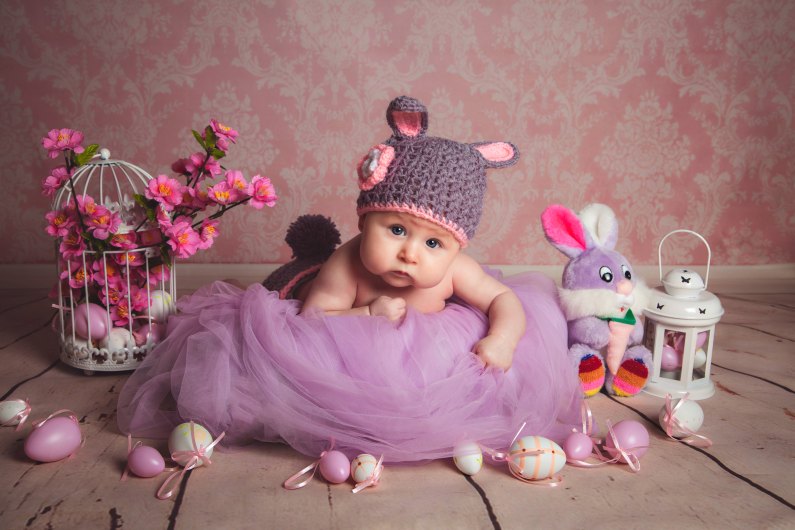Unraveling French Culture with Humor
Text transcription of the interview with Stephen Clarke
Sabrina: This is Sabrina from the blog Frenchness and I’m here with Stephen Clarke, the successful author. Thank you so much, Stephen, for being here with us today. It’s a great honour for me, so thank you very much. So, maybe can you start by introducing yourself?
Stephen Clarke: Yeah. Er, hello, bonjour. I’m Stephen Clarke.
Sabrina: Hahahaha!
Stephen Clarke: I’m a writer. I live in Paris. I’ve lived in Paris for more than 20 years, so I’m kind of just as Parisian as I am English, so when I write, I kind of write from a dual perspective; I think like a Parisian, I live like a Parisian, but I’m sort of genetically English, so it’s that kind of mix.
Sabrina: Yes.
Stephen Clarke: And I’ve written almost twenty books now, but the ones that people know best are the one you’ve got there, ‘A Year In The Merde’ – my first novel, and there are about six of those; ‘Merde Actually’, ‘Dial M For Merde’, ‘The Merde Factor’, ‘Merde in Europe’, there are lots of those. And I’ve also written some history books like ‘A 1000 Years of Annoying The French’, ‘How the French Won Waterloo (or think they did)’, so I do sort of non-fiction as well.
Sabrina: OK. Thank you. So you have strong experience with France, ‘cause I think that you’re living in France actually now?
Stephen Clarke: Yeah, yeah. I’ve lived in France for about twenty years. I mean, well before, you know, Covid and Brexit, I used to spend about half and half in London and in Paris, but now I’m stuck in Paris much more.
Sabrina: Yeah. Lucky you or unlucky you!
Stephen Clarke: Yes. At the moment – at this very moment – I’m in London.
Sabrina: OK.
Stephen Clarke: But only for a few days.
Sabrina: OK.
Stephen Clarke: So, I’m quarantining in London.
Sabrina: OK, no problem. So you speak French as far as I understood, so before you came to France, did you speak French or not at all? What happened?
Stephen Clarke: I mean, the first time I came to live in France was a long time ago when I was a student. I came to be an ‘assistant’ as we call it; a ‘lecteur d’anglais’ – an English assistant in a French lycée (high school in English) in the south of France in Perpignan, and then, I mean I had A Level French, and my school, it was very good because we’d had French assistants and German assistants, so actually we spoke pretty good French and German if we’d done those A Levels. So I kind of felt comfortable, but I didn’t, you know, there were some things – idiomatic French, I didn’t really know idiomatic French at all, so I remember one of the first weird sentences I heard was – I was in a car with somebody, because I used to hitchhike a lot…
Sabrina: Yeah.
Stephen Clarke: …and I was in a car and someone said, ‘On va se taper les feux’. And I thought, we’re gonna hit the traffic lights, and I was thinking, ‘No!’.
Sabrina: Don’t do that! Hahahaha!
Stephen Clarke: Whereas in fact, it just means, “We’re going to get stopped by the traffic lights”. And so I was discovering these idiomatic phrases, like constantly. If you’re interested in languages like I am, it was an amazing experience, because you know, all the time I was learning new words and expressions, so I could understand well enough to learn new expressions, so it was great for me.
Sabrina: Yeah, it’s good. It’s very interesting what you’re saying, because it’s true that when you’re not living in France, it’s not idioms, expressions that you’re going to see in books; you can only live here to know it, so that’s funny. So you spoke French when you came to live in France, but what was the hardest part of learning it?
Stephen Clarke: Well, I mean if you’re a Brit, the hardest part is the pronunciation. I mean, I still have problems like that. Some French people still laugh at me, because I can’t, you know, if you listen really carefully, I can’t pronounce the simple number ‘eight’, because I say ‘wheat’, for instance, not ‘huit’. I sound like I’m talking about the cereal, you know, ‘wheat’?
Sabrina: Yeah.
Stephen Clarke: Even now. But for us, there are some sounds which you just naturally can’t make, like the ‘r’, you know, ‘r’? And I remember the first time – I actually put this in one of my books – because it happened to me where I was… it was in my second novel, ‘Merde Actually’, I tell the story about how I was in the Corrèze, you know, in the centre of France…
Sabrina: Very well for the ‘r’!
Stephen Clarke: Yeah, thank you, yeah. I can do it now if I think about it, but I had a sort of slight traffic problem with some police and everything, but they said to me, you know, we started chatting and they were very friendly, and I said to them – I wanted to say to the man, he said “OK, you know, drive really carefully and we’ll forget all about it.” I said “OK”, but then half jokingly, I wanted to say “Do you put your hand on your heart and promise, OK, that I won’t get a fine?”, you know?
Sabrina: Mmm.
Stephen Clarke: And I said to him – because I can’t pronounce the ‘r’ is, you know, in French ‘heart’ is ‘coeur’, ‘coeur’ – you have to pronounce the ‘r’, but I didn’t pronounce the ‘r’, and in French, you know ‘queue’ without the ‘r’ means your male private parts, so what I actually said to him was, “Do you put your hand on your willy and promise?”, and you know, he looked at me.
Sabrina: Hahaha!
Stephen Clarke: I hope he understood what I actually meant, but I didn’t get a fine, so it worked, yeah. So you know, there’s that, and also, we can’t tell the difference between, for example, the vowels, you know, ‘o’ and ‘u’, and the famous one of course is “Merci beaucoup” (thank you very much), but we quite often in English, we say “Merci beau cul“, which means ‘Thank you beautiful arse’, you know?
Sabrina: Yes.
Stephen Clarke: So you know, you can make all these low mistakes, and sometimes I still make them, because if you’re speaking French, you really have to concentrate, you know?
Sabrina: It’s true.
Stephen Clarke: And, you know, the difference between a-n (‘an’) and o-n (‘on’) as well, you know, because once I said to a friend of mine – a French friend said he was going to get married, and I wanted to ask him like, “When?”, like “Quand?“, and I said, “con”.
Sabrina: Hahaha!
Stephen Clarke: You know, ‘dickhead’. He wasn’t very pleased, until he understood, you know…
Sabrina: That’s funny! That’s very funny!
Stephen Clarke: I put this kind of thing in my books all the time, because it just happens all the time.
Sabrina: It’s true. That’s what I really like about your books, it’s that I can picture an English-speaking person being in France, because I’ve met several, and everything you’re saying, it’s actually true, like right now about the pronunciation, or some anecdotes, and it’s super funny.
Stephen Clarke: It’s all based on truth. Someone once said to me that in my books I make fun of the French accent speaking English. That’s not true, I just put it phonetically – it’s phonetically true, it’s what I really hear when I hear French people speaking English; it’s phonetically correct, but I also make fun of English people speaking bad French. It’s not, kind of, racist or anything…
Sabrina: I know.
Stephen Clarke: It’s just that is the way people really speak, and I know because I hear French people speaking bad English, and English people speaking bad French, and I just write it down phonetically. I’ve studied phonetics – I know how to do this, and it’s not at all, you know, racist, it’s just that is how people speak.
Sabrina: Exactly.
Stephen Clarke: Sometimes it’s funny. I’m sorry, you know, sometimes it’s funny!
Sabrina: Exactly, exactly. Let me tell you a quick story that happened to me when I was in the US. I was in an apartment, and I had a lot of ants in my apartment, and I called the landlord and I said “OK, look. There are a lot of ants in my apartment, please do something. I already put bomb on it.”, and ‘bomb’ in French, it’s a spray, so I just translated in my head, and the landlord started screaming on the phone like, “What did you do in my apartment???!!!”. So he thought I really put a bomb on the ants…
Stephen Clarke: Exactly.
Sabrina: …which obviously I didn’t!
Stephen Clarke: Yeah.
Sabrina: So yeah, it happens. OK, so what about living in France? Is it just like you expected before, or as you were a ‘lecteur’ before, I guess you enjoyed it because you came back so…? Hahaha!
Stephen Clarke: Yeah, you know, it was true – especially back then, I mean, I didn’t have much money back then, but you could go to a café back then and you could have a really good meal. Back then, restaurants in London were really bad. Literally, in London you could not get a good cup of espresso in like, the whole of England, except for a few Italian cafes in Soho, so I went over there and I suddenly discovered what real coffee was, and espresso, I’d never had espresso – espresso was poor – you know, and so I’ve become addicted. I can’t do anything in the morning until I’ve had my espresso, and you know, I discovered things like that. And also, I remember it was in Perpignan in the south, and I wanted to get an apartment, and I found an apartment that was really cheap, and I didn’t understand why it was so cheap, and then I went there, and it was sort of in this really old building with like, a shared toilet – it was awful, but it was really cheap, and I’d never seen anything like that in England, because in England, you know, I’d always lived either with my parents or at university…
Sabrina: Yeah.
Stephen Clarke: …and suddenly, out in the old town of Perpignan, you know, it was really exotic. It was actually great fun, you know?
Sabrina: Yeah?
Stephen Clarke: It was exotic.
Sabrina: Good. So it’s good souvenirs that you have of Perpignan?
Stephen Clarke: Yeah. I mean, I studied French and German, right, at Oxford. And so my tutor, before I took my year off, my tutor said, “OK, you speak French and German. You’re going to go to like Strasbourg maybe, or Metz or Nancy, you know on the border”, and so I just said “No, I want to go to the sun”, so I applied for I think Arles, Toulon and Perpignan, and I got Perpignan, so you know, it was fantastic. I spent, you know, from January onwards I was in a T-shirt. It was fantastic.
Sabrina: I know. We all envy the weather there. OK, and about your book, so your experience in France obviously is a great source of inspiration for your books. I have your first one right here as I said, “A Year In The Merde“, and tell me more about your latest book maybe.
Stephen Clarke: My latest book. Well, I’ve got it here. By coincidence, I have it here.
Sabrina: Hahahaha!
Stephen Clarke: It’s called ‘The Spy Who Inspired Me’, and this is actually, I mean it’s a bit different – it’s my first historical novel, so it’s combining my love of writing about history with my love of writing fiction. It happens in France. It happens along the north coast of France mainly, from between about Dieppe up to Boulogne-sur-Mer, that north coast – which isn’t very well known…
Sabrina: No.
Stephen Clarke: But the reason I chose it is partly because I spent quite a lot of time there, because I worked on a museum. There’s a place called the Château d’Hardelot, which is in Boulogne-sur-Mer, which is now the Centre Culturelle de l’Entente Cordiale – the sort of Entente Cordiale cultural centre celebrating the Anglo-French agreement of 1904, and they’ve actually installed in it a museum which starts with William the Conqueror, and goes up through to the tunnel, you know, the Eurotunnel, and it’s inspired by my book, ‘A 1000 Years Of Annoying The French’. It’s a really nice little museum – it’s free as well – and so I spent a lot of time up there putting the museum together, so I know that area quite well now. Beautiful beaches, you know, nice beer.
Sabrina: But very cold.
Stephen Clarke: Well, for a French person, but for us, it’s south.
Sabrina: Yeah, so it’s too hot! Hahaha!
Stephen Clarke: And also, that is the place where Ian Fleming located his first novel, ‘Casino Royale’. And so this book takes place… in fact this man here is called Ian Lemming, not Ian Fleming – big difference – and he actually goes to this place by accident because this woman here, she is a secret agent, and he incidentally joins her on a mission, and she teaches him everything he needs to know about spies during their mission in France. They go along the north coast, and then they go to Paris, you know, escaping… it’s a bit of a comedy, but it’s also a spy story.
Sabrina: Yeah.
Stephen Clarke: And they escape from the Gestapo and all that sort of stuff, and so it’s about the French occupation, with quite a lot of historical stuff about what was happening in April 1944 just before the invasion, so it’s a kind of historically accurate novel which is a bit of a parody of James Bond, with the woman here taking revenge for the sexism of Ian Fleming’s Bond Girls, you know…
Sabrina: Finally!
Stephen Clarke: Yeah, exactly. In a James Bond book or a film, you can never trust a woman.
Sabrina: It’s true.
Stephen Clarke: And so she is the opposite – she can’t trust him, because he doesn’t know anything about spying! You know, the real Ian Fleming spent almost the whole war in an office in London, and here, I imagine that he gets dumped in France with an expert spy, and she has to teach him everything and he’s humiliated, so he starts imagining this really sort of suave, very masculine, male spy humiliate women as like revenge for everything he’s suffered. So, this is kind of a fun spy novel. It was supposed to come out at the same time as the James Bond film, but of course, they keep putting it back.
Sabrina: Yes. Because of the pandemic.
Stephen Clarke: The book came out last November, but it will probably come out again when the Bond film comes out, you know, to link up with it.
Sabrina: Yes.
Stephen Clarke: Anyway, that’s my latest one.
Sabrina: Perfect! I will put a link on your website, so that people can have a look and can buy it! Perfect! It really seems so interesting, I can’t wait to read it. Erm… sorry?
Stephen Clarke: You can read it if you want now, you know.
Sabrina: Yes. So, I have a question now about tourism in France. You said that north of France, it is true, it is not so well-known, let’s say – not a lot of foreign people go there. Of course, there is the south of France, but maybe Perpignan is not the place that people think about when they think about going on vacation, so where would you recommend to go to visit? Maybe like a secret place or something not so famous?
Stephen Clarke: Well, I mean, I really like… the area around Perpignan there, I mean there are famous places there like Collioure – a little fishing village that was painted by Matisse, and Derain, and all the Fauves painters. That’s a beautiful fishing village, with some nice little restaurants right on the sea. Obviously, in July and August, it’s swamped with people, but outside there, it’s just a lovely little village with a nice beach; you can go swimming and snorkelling and see the fish and everything. Collioure. And also, if you go in-land from there, the Pyrenées – the hills are really beautiful. Not many people, you get small villages, rivers you can sort of paddle in – it’s great for walking. And there’s a town called Céret, which is a beautiful, old town. It’s also an artists’ town, and it’s got a nice little art museum, and it really feels… I don’t like, personally, I’m not too fond of sort of the south-east, from Marseille east, it’s a bit snobby.
Sabrina: Yeah.
Stephen Clarke: Yeah, I don’t like it very much, whereas down in the south-west around Perpignan and the Pyrenées, people are much friendlier I find, you know. And also in the Pyrenees, if you go further inland, you’ve got the Cathares castles, you know, these ruined castles on hilltops.
Sabrina: Yes.
Stephen Clarke: Which are very dramatic, very beautiful as well. So, I mean I kind of like those areas up there.
Sabrina: Very nice. Thank you. So, now you’re in England, but when you’re in France, what do you miss most about England?
Stephen Clarke: One of the reasons I come back to England is the beer. I mean I’m not an alcoholic, but English beer, what we call bitter – a sort of dark, not very strong beer, it’s only about 4 percent alcohol. Not very strong, but very tasty, and you don’t drink it freezing cold so you get a full taste, and some of the pubs in London still do really good, old-fashioned English beer, so I miss that. I mean, when things are sort of normal, in London I love going to comedy clubs, because there’s loads of stand-up comedy, and it’s something that’s starting in France, but it’s not really taking off.
Sabrina: No.
Stephen Clarke: If you go to a comedy club in London, maybe you’ll pay ten pounds, and you’ll get like five comedians. The first one will be kind of a novice – not fantastic – and then they get better and better, and then the star will be really professional – really funny, for just like ten pounds, you know?
Sabrina: Wow.
Stephen Clarke: And there will be like five of these nights going on all over London every night, so you really have your choice and you can see some big names. And my books are supposed to be funny.
Sabrina: They are.
Stephen Clarke: And when I write, I try to write a bit like joke writers, so, you know, with punchlines and things like that, and especially in the novels, I try to write them as if they’re being spoken out loud. For me, stand-up comedy is quite important in the way I write. So I love to go and watch them. At the moment, it’s impossible in London, but that’s one thing I love coming back for, because I do miss that in France.
Sabrina: I understand. And talking about humour, can you understand French humour? Is it funny for you when you see a comedian?
Stephen Clarke: Oh yeah. Some of it. I mean, I remember the film ‘Ridicule’, you know, which is about an aristocrat who goes to the court of Louis XIV.
Sabrina: Yes.
Stephen Clarke: And in order to get on in that court, you had to make jokes – you had to make witticisms. It’s very intellectual, but very clever witticisms; the French are really good at that. Also, I mean, some especially older French films have great dialogue. You know, ‘La Cage aux Folles’ has fantastic dialogue, you know, Francis Veber, and I really love the old French comedies, like was it ‘Le Grand Blond…’?
Sabrina: Avec la chaussure noire?
Stephen Clarke: Pierre Richard, which was just like joyously, farcically absurd.
Sabrina: Yes.
Stephen Clarke: And the French still made films like that occasionally, like you know, ‘Les Ch’tis’, which is about a fellow from the south of France who goes to live in the north, and all the differences…
Sabrina: Exactly.
Stephen Clarke: That was great fun. I do think that in some ways – especially Parisians – they take life and themselves too seriously. Whereas in England, almost any conversation can have jokes.
Sabrina: Yeah.
Stephen Clarke: Like sometimes, I’m in France, and I’m having a conversation, I make a joke, and they sort of look at me as if to say, “Was that a joke?”.
Sabrina: Hahahaha!
Stephen Clarke: Is he being stupid, or is he making fun of us, or what? And they’re kind of thrown, whereas no, I’m just English, so sometimes I say something stupid. You know, it’s what we do. And so occasionally, you know, I find Parisian films especially, sometimes they take themselves way too seriously.
Sabrina: Yeah, that’s true.
Stephen Clarke: Especially in Paris.
Sabrina: Yes. I don’t like Paris.
Stephen Clarke: There are some really funny French films occasionally. There’s a helicopter going past.
Sabrina: I can hear that. It’s like you are in the book.
Stephen Clarke: I think maybe someone’s trying to kidnap the Queen or something.
Sabrina: Hahaha. Yeah, OK. OK, and I have one last question. What is the advice you would give to people who are listening to us and who want to learn French or maybe to come and live in France? What would you advise them?
Stephen Clarke: Oh, do it. You know, it’s great fun. French – don’t be scared by French grammar; it’s very complicated, but you can learn it. You know, it’s a kind of Latin-based language, so there are rules. So you can learn them. I mean, the only way to learn real French is to come to France and sort of live it and talk it. The people who speak the best French are the ones who have actually worked in a French company. You know, before I became a full-time writer, I spent years working in French companies in the office, and that’s the way you get to talk. You know, to know real French is talking it all day.
Sabrina: Yes.
Stephen Clarke: That’s the best thing. But I mean, personally, if I were a Brit, I would avoid going to live in the Dordogne, where if you go into your local café, half the people might be English, you know?
Sabrina: That’s true.
Stephen Clarke: There are fewer of them. For a start, everything will be much cheaper, and also, you’ll speak real French, you know.
Sabrina: Yes. If you go to Normandy as well, I think there are many British people in Normandy.
Stephen Clarke: Yeah, Normandy and Brittany, there are lots as well. Yeah, yeah.
Sabrina: OK. So, you’re absolutely right. If you want to come and settle in France, just do it. It’s going to be the best way to learn French and to learn about the culture. So thank you so much, Stephen Clarke, for accepting this invitation. It was a great pleasure, and I will put a link to your website, and go check it! Thank you! Bye-bye!
Stephen Clarke: Bye-bye!






